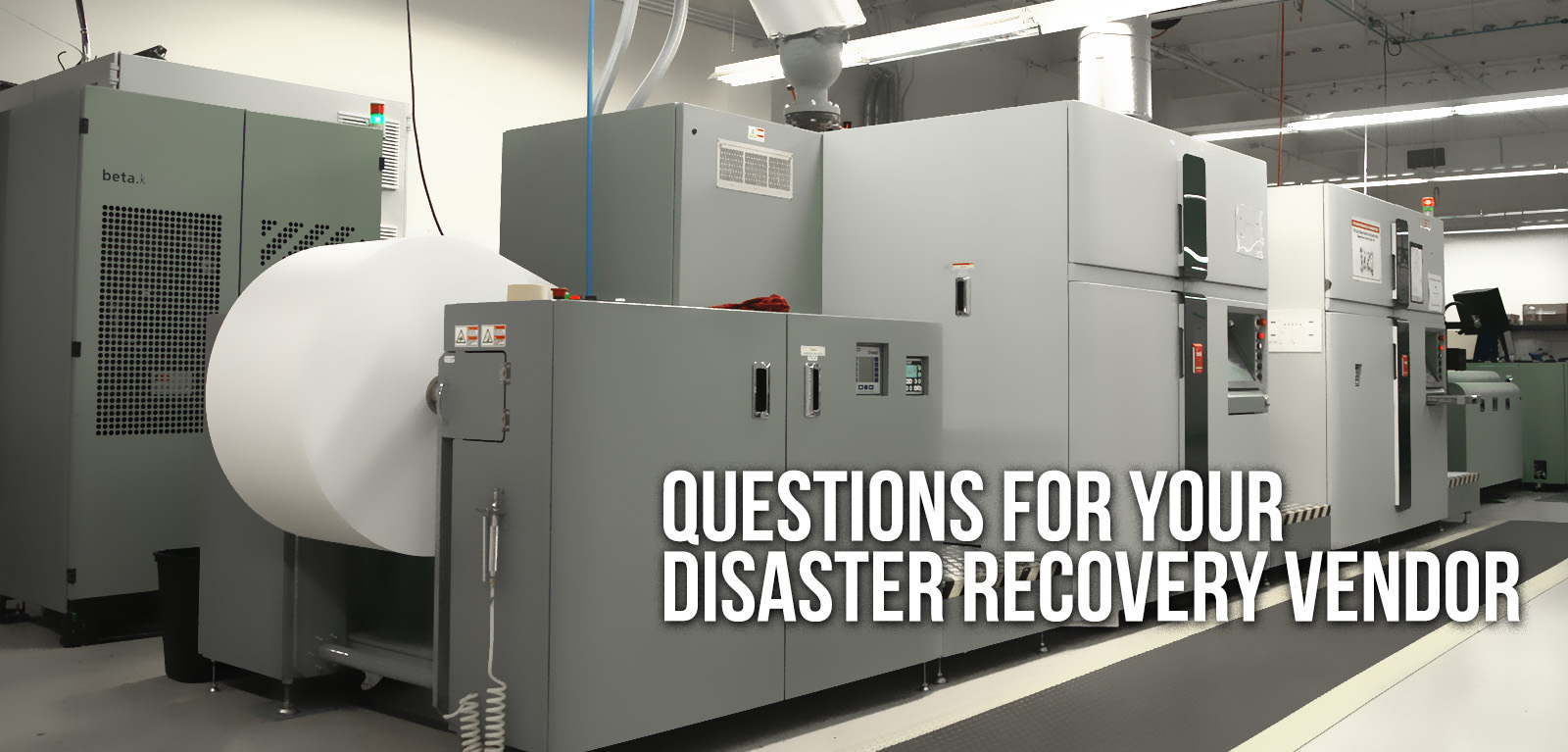
And the Answers You’ll Want to Hear
When partnering with a customer communications business continuity provider, there are lots of questions to ask. Beyond the basics of equipment and capacity, many other critical questions remain. And, what’s even more important than the questions are the answers you should expect. If you are unsure about the capabilities of your provider or are seeking a new one, follow these questions to find the best fit.
What are the physical security practices in place?
Securing the data virtually is only one part of safeguarding personally identifiable information (PII). Its location and structure must also be secure. It’s not just a best practice, it’s a compliance must. The site should be constructed to be able to deal with any weather conditions that may present themselves in that geographic region. In addition to a safe structure, the site should have backup power options. You’ll also want to ensure the location has ample security, including 24/7 surveillance. The location should be accessible to only those with a need and access restricted to others. Get the details on how they keep any of their physical sites where your materials may be printed.
Is the site regularly audited?
The site will need to meet the requirements of different regulations depending on the industry and content, as well as the dictates of state and federal governments. For a site to validate its compliance, audits must take place. These audits could be carried out by regulating bodies or third parties that offer such services. Internal audits may be carried out as well. Ask about any audits and request to know if those resulted in any recommend changes. Also, if they have any certifications from these audits, learn more about those. If your vendor has no evidence on audits, this could be a red flag.
Where are their disaster recovery locations?
Most customer communication vendors have multiple locations, or at least they should! And those locations should be in different parts of the country. It won’t be helpful of their locations are in the same state, even it’s a large area like Texas and California. This matters because if a natural disaster occurs, the locations need to be further away from each other, so they aren’t both rendered offline.
What other supplementary services do they offer?
You may find that just because they can print and mail your communications, they lack other services that you utilize on your own, like mail tracking or address scrubbing. If they don’t have the same features you expect, then should they be called upon to back you up? The quality and accuracy of your mailings could be compromised. Ensure your vendor can continue operations just as you would.
What is the support process like once in Business Continuity mode?
The hope is always you won’t need to activate your BC plan. But when you do, you need to feel confident that what comes next is the right response. Your provider should offer a clear plan and explanation of what happens next. Learn how fast they can get your communications running.
Are all the services (printing, fulfilling, and mailing) all handled by your vendor?
Not every vendor offers all that you need in the customer communication ecosystem. The letters must be printed. Then there’s collation, folding, and inserting. Finally, they all must be mailed in compliance with postal regulations. Your provider may be only one stop in the process, handing it to others downstream. That means you’re dealing with a business’ contractors. Without contact with them, you’ll have no idea if the process is up to your expectations. Make sure that all pieces of the puzzle come from one vendor not many.
Is the response real-time?
If your system goes down, and delays occur, this could seriously disrupt your cash flow. After all, your customers have to receive their bills to pay them. Even though many consumers now receive digital bills, there is still a large group of mail-only payers. Any delay, no matter how minimum, could have significant implications on your finances.
Your customer communications business continuity plan is something worth the extra scrutiny. If you find your operations down, the partner you call needs to be one you trust. To build that trust, you’ll want to ask a lot of questions, some of which you may not have thought about. These seven questions help you dig deeper into what you can expect should disaster strike. At PCI, we don’t mind the questions. We’re happy to answer these and more about our business continuity solutions.

